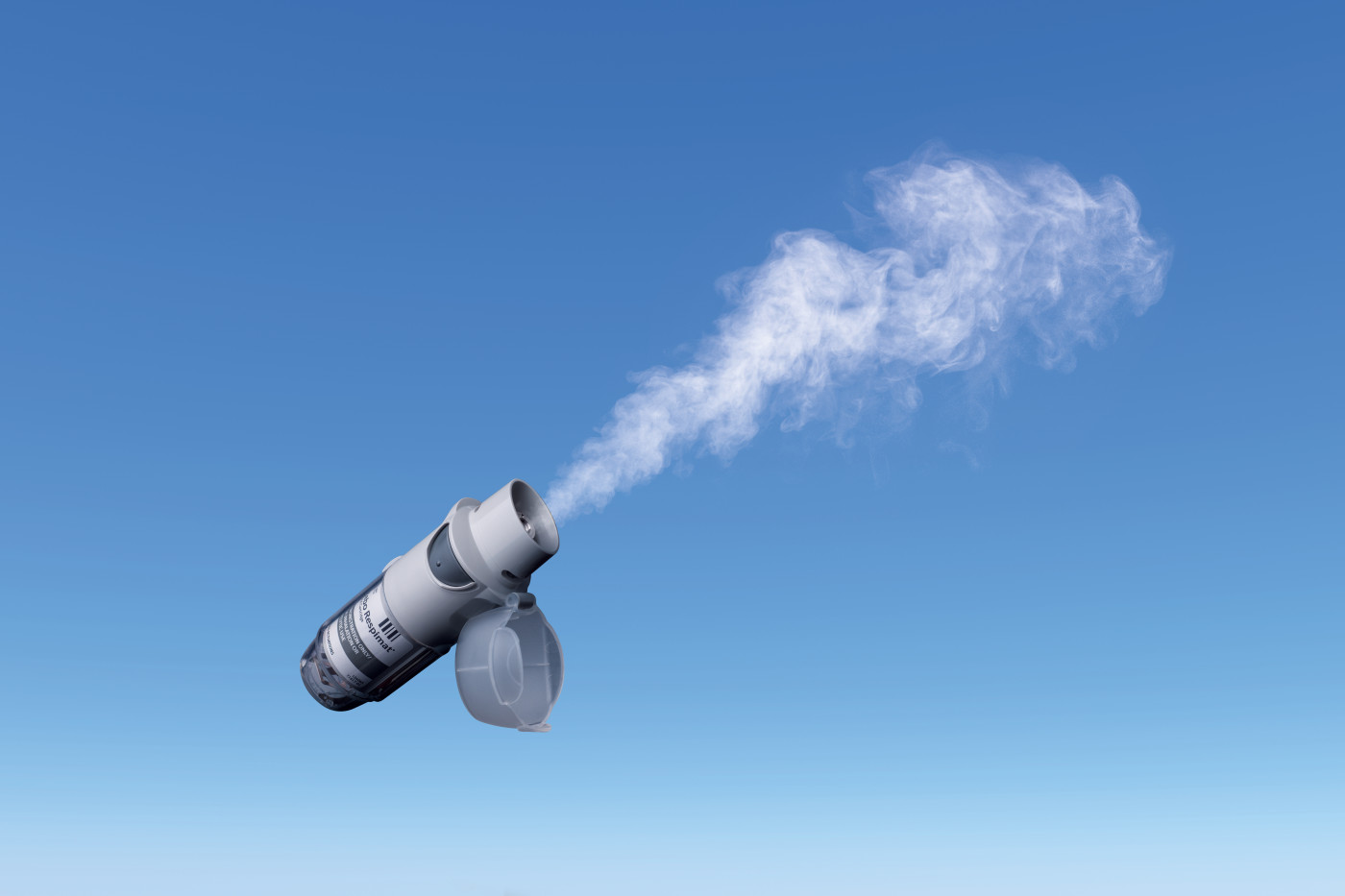Treatment with Spiolto Respimat Reduces Rate of COPD Flare-ups Compared to Spiriva Respimat, Study Shows
Written by |

Spiolto Respimat by Boehringer Ingelheim.
Treatment of chronic obstructive pulmonary disease (COPD) patients with Spiolto Respimat (tiotropium/olodaterol) reduced the rate of moderate-to-severe exacerbations, compared to Spiriva Respimat (tiotropium bromide), in a Phase 3 clinical trial, according to Boehringer Ingelheim, the manufacturer of both therapies.
The results were published in the journal The Lancet Respiratory Medicine, in an article titled “Tiotropium and olodaterol in the prevention of chronic obstructive pulmonary disease exacerbations (DYNAGITO): a double-blind, randomised, parallel-group, active-controlled trial.”
COPD exacerbations are acute episodes of aggravated symptoms, namely breathlessness, cough and mucus production, that can last several days or weeks. These flare-ups can seriously impact patients’ quality of life and require urgent medical care, including hospitalization. They can be fatal.
Spiolto Respimat uses a combination of tiotropium — a long-acting muscarinic antagonist (LAMA) — with olodaterol — a long-acting beta 2 agonist (LABA) — in an inhalation spray currently approved as a once-daily maintenance bronchodilator therapy for COPD patients.
The 52-week, Phase 3 DYNAGITO trial (NCT02296138) primarily tested whether Spiolto Respimat reduces the annualized rate of moderate and severe exacerbations beyond the benefits provided by Spiriva Respimat, which contains only the LAMA tiotropium.
Scientists recruited COPD patients who had at least one moderate or severe exacerbation needing treatment with systemic glucocorticoids and/or antibiotics, or hospitalization in the previous year. The trial involved more than 7,800 patients from 51 countries.
The DYNAGITO study is part of the large-scale TOviTO Phase 3 clinical trial program with more than 16,000 patients, which intends to evaluate the effects of Spiolto Respimat on the clinical course of COPD.
Results showed that the combination of tiotropium and olodaterol led to a 7 percent overall decrease in moderate-to-severe COPD exacerbations, compared with tiotropium alone.
Fewer exacerbations needing treatment with a systemic corticosteroid, with or without antibiotics, also were observed in the group receiving Spiolto Respimat (20 percent lower rate). In cases requiring both a systemic corticosteroid and antibiotics, Spiolto Respimat resulted in a 9 percent lower rate of flare-ups. No difference was found in patients requiring treatment with antibiotics only.
Despite these benefits, the statistical difference between the two treatments was not as strong as the authors had predicted.
“Combining tiotropium and olodaterol did not reduce exacerbation rate as much as expected compared with tiotropium alone,” the researchers wrote.
Nonetheless, “the results of DYNAGITO are of value, as they show that [Spiolto Respimat] can lower the rate of moderate-to-severe exacerbations in many patients compared to [Spiriva Respimat] — a tough comparator which has consistently demonstrated exacerbation risk reduction through long-term, real-world experience,” Peter M.A. Calverley, MD, the study’s first author, said in a press release.
Regarding safety, the data showed that Spiolto Respimat had a similar safety profile to Spiriva Respimat.
“These data support evidence-based expert recommendations that dual bronchodilator LAMA/LABA therapy has a central role in the management of people with COPD, in terms of symptom improvement and exacerbation risk reduction,” Calverley added.
Using LAMA/LABA medications, such as Spiolto Respimat, may help minimize COPD symptoms and the risk of flare-ups, according to the 2018 GOLD Strategy recommendations.

